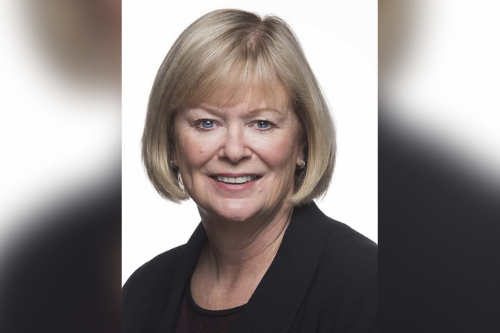

The managing general agent (MGA) sector in Canada is fertile ground for growth and opportunity. A surge of premium has flown into the channel over the past few years, thanks to hard market conditions driving commercial insurers away from the most challenging classes of business, and the sustained low interest rate environment forcing carriers to divest moderately profitable classes of business through capacity arrangements with MGAs.
There are certain areas where MGAs provide great value, according to Carol Jardine (pictured above), president, Canadian P&C operations, The Wawanesa Mutual Insurance Company. Through their direct relationships with Lloyd’s of London and primary reinsurers, MGAs are often able to insure risks that domestic Canadian insurers aren’t quite ready to undertake.
“That allows the domestic insurers to learn and follow,” said Jardine, during the CEO panel at the Insurance Brokers Association of Ontario (IBAO) 2021 Virtual Convention. “Cyber is a good example. It came in through an MGA, different insurers took a slice of it, and now there’s a comfort level with what we will and will not underwrite on cyber. Marijuana was a similar risk, where some of the foreign insurers were more comfortable [going] through an MGA, and now we’ve got more domestic insurers understanding what they will and will not underwrite.”
Read next: IBAO CEO on new project
From that perspective – one of MGAs filling gaps in the marketplace, and in doing so, educating domestic insurers about complex and/or emerging risks – Jardine said they “provide great value”. But the insurance leader also harbours significant concerns about the MGA sector, especially as it consumes more and more premium.
“What worries me about MGAs is their lack of regulation. It really concerns me,” she said. “Brokers have professional standards. The Canadian Council of Insurance Regulators (CCIR), your provincial bodies – they all have expectations about treating customers fairly [and other expectations] and you have penalties if you don’t meet those. Insurance companies are [also] highly regulated around our capital and the way that we handle things, and we’ve got lots of people watching over our shoulders.
“MGAs are in this funny middle ground where they’re not regulated. They’re not brokers, they’re not insurance companies, but they collect premiums, they pay claims, and they write their own wordings. I’m glad to see CAMGA come out [and address this], and I’m hoping that they’re going to be able to tackle that issue for us because we run the risk as an industry that we could bear any reputational risk of an MGA if it doesn’t work out.”
Beyond the lack of regulation for MGAs, another issue that Jardine described as “challenging for the industry” is the cost of doing business for brokers.
“As a main street commercial underwriter, really brokers should be able to access most risks through a domestic market,” she stressed. “By putting it through an MGA, not only do you distance yourself from that advocacy and service, you still represent the customer, but you’re transferring a lot of your responsibilities to somebody else. So, I would hope the brokers would first look to the primary market, and if they don’t have enough markets, then find a way to do that. But I get a little bit worried if too much of our business is going through an unregulated entity.”

Another regular on the IBAO CEO panel - Louis Gagnon (pictured immediately above), president, Canada, Intact Financial Corporation – said that while he believes MGAs provide a fundamentally important service in the Canadian market, and agrees with Jardine in that MGAs need “very smart regulation.”
“I think we should make sure that there’s a really smart regulation around those organizations, mainly on everything that’s related to customer, and everything that’s related to broker relationships,” said Gagnon. “How do you share the risk and how do you share the responsibility of the thing you do? I don’t think it’s very clear right now around who is responsible for what with the MGAs, but I think those things are known, I think they’re solvable. It should just take a bit of time to make it clear for everyone.
“MGAs fill gaps where sometimes it’s more difficult for domestic insurers [because they] do not have the expertise or have not been exposed to certain risks. They’re very flexible, they’re good for the marketplace. We saw it through COVID - the importance of adding flexibility in the market during a period where there’s all sorts of [disruption] going on, and I think that’s key. But smart regulation around [the MGA market] would be appropriate.”
